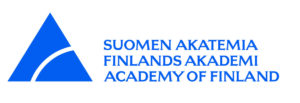
What happens to home when it becomes smart/er? What does “smartness” at home mean? What are the various consequences of home smartening? SMARTUP targets these questions as it explores how digitalisation affects our homes.
Home has long been positioned by means of particular dichotomies such as outside and inside, public and private, work and care, masculine and feminine, human and non-human. The digital transformation of home challenges these dichotomies as we could most recently witness in the fallout of the COVID-19 pandemic. SMARTUP investigates how the home has been transformed by digitalisation. How does going digital change what we understand and imagine as home? How does smartening up affect how homes are planned and designed as well as experienced on an everyday basis?
To explore these aspects of home digitalisation, SMARTUP brings together an interdisciplinary consortium from across Europe that includes experts from social sciences, design studies and (post)humanities. This variety will help the SMARTUP team to produce a unique, interdisciplinary perspective on what happens to home in(to) which digital technologies proliferate.
SMARTUP is not limited to expanding scholarly and lay understanding of “home” though. In collaboration with practitioners of smart home design & production, and civic and cultural institutions, SMARTUP also focuses on the impact of digital transformation on the home and its wider societal and cultural implications. In short, SMARTUP closes a gap in knowledge about the consequences of digitalisation in and of home by identifying societal and conceptual challenges posed by intensification of smartening up of home. At the same time, SMARTUP offers practical and theoretical ways to solve these challenges.
CONSORTIUM:
- Project Leader: Petr Gibas, Institute of Sociology of the Czech Academy of Sciences, Socioeconomics of Housing, Czechia, e-mail
- Turkka Keinonen, Aalto University, Department of Design, Finland, e-mail
- Julia Gruhlich, University of Göttingen, Germany, e-mail
- Dorota Golanska, University of Lodz, Institute of Contemporary Culture, Department of Cultural Research & Women’s Studies Center, Poland
- Clarice Bleil de Souza, Cardiff University, Welsh School of Architecture, United Kingdom, e-mail
COOPERATION PARTNERS:
- Julia Day, Washington State University
- Liam O’Brien, Carleton University, Canada
- Jarosław Suchan, Muzeum Sztuki w Łodzi (Art Museum in Lodz)
- Blanka Nyklová, Centre for the Study of Popular Culture(CSPK), e-mail
 Start date
Start date
1 October 2022
 Project duration
Project duration
36 months
 Project budget
Project budget
€ 1 484 848
Funding organisations

![]()

![]()
![]()
![]()